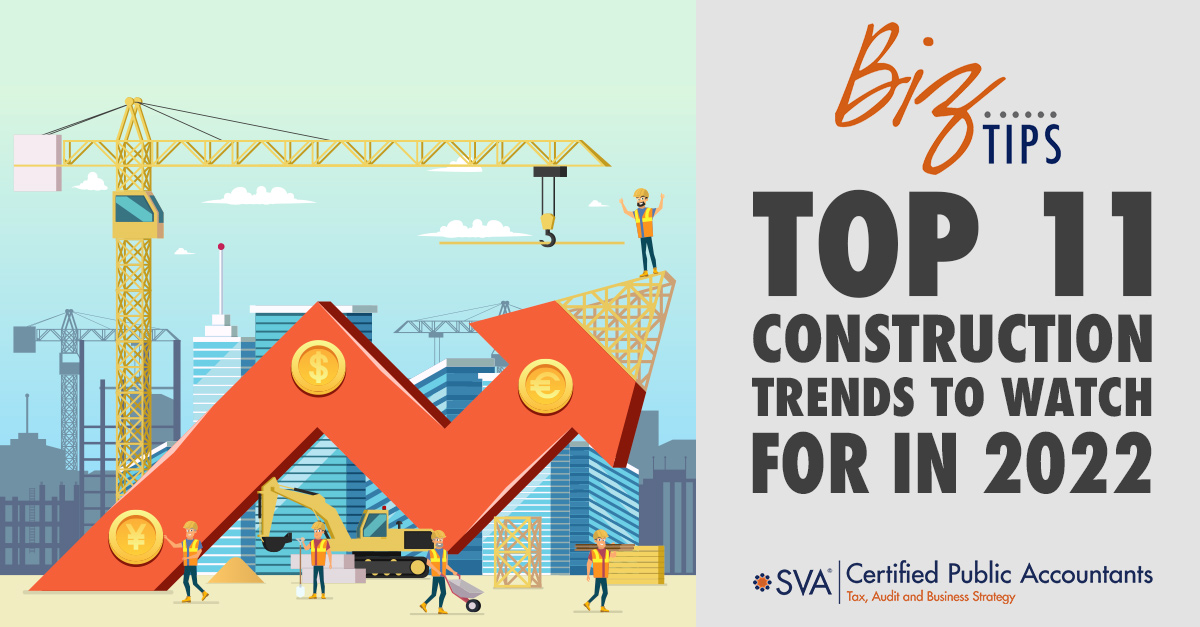Construction is a tough industry with success often requiring the best building materials, superior methods, outstanding building speed, skilled labor, and exceptional job-site efficiency. These assets help companies keep their projects flowing smoothly, quickly, and safely.
To be able to keep up this pace, new technologies need to be adopted, including cloud-based scheduling and workflow management apps that work in real-time, which many companies have adopted. However, there are a range of other construction industry trends you'll want to keep an eye on in 2022.
11 Construction Trends for 2022
1. New Material Options
There are always new materials being produced, but digital transformation has increased this process to a frantic pace. New materials have properties that can help reduce construction costs, such as self-healing and flexible concrete, as well as transparent aluminum to reduce weight.
2. Modular Construction
Pre-fab and modular construction is on the rise due to higher quality, reduced cost of materials and shipping, and lower construction waste. Modular projects take half the time compared to traditional and run 20% less in construction costs. By 2023, the modular construction market may reach $157 billion.
3. Finding and Keeping Labor
Getting and retaining labor is vital to keeping your projects running. The tight labor market is making it hard for many companies to keep good labor so they can retain the skills they need to successfully and profitably complete their projects. Competitive wages, good benefits, training, and new tech helps you find and retain workers.
4. Additive Manufacturing
Also known as 3D printing, additive manufacturing can be used for replacement parts, project components, or other items needed on a construction site, emergency or basic housing for low-income families or disasters, and very detailed construction models, updating them quickly and easily as changes are made to the project design.
5. Digital Transformation
Digital transformation is sweeping through virtually every industry on our planet, including construction. This process includes the Internet of Things, machine learning, pervasive networking, cloud computing, and analytics all combined to help you improve your company's productivity, safety, and efficiency. In the industry, robots can handle repetitive tasks such as bricklaying, while cloud-based apps improve communication, collaboration, workflow, and tracking documents between your site and the office team.
6. Artificial Intelligence (AI)
Combined with machine learning, building information management, construction sensors, wearable tech, and a number of other monitoring tools, AI can be integrated to make it easier for your company to make intelligent real-time decisions. This lets you reduce your construction expenses, improve forecasting, and have superior construction management, as well as identify high-risk behavior or hazardous situations.
7. Building Information Models
A computer-based construction tool, building information modeling (BIM) is a tool that keeps advancing as it passes through new versions. A number of different levels of programming are available in this type of cloud-based technology, up to 7D or seven dimensions, providing an outstanding level of detail to your building model. It provides users with information on all phases of construction, while being able to input your construction schedule, expenses, materials used, and similar details.
8. Digital Twin Structure
In the construction industry, digital twins are perfect virtual models of your construction sites. They're created using technology from the Internet of Things to capture thousands to millions of data points, which are processed using artificial intelligence. This information can then be monitored, changed, or viewed in real-time to try out new concepts or change the structure to improve the project scheduling, building design, or operational systems.
9. Drones
When a technology has a 239% increase year-over-year, you might want to pay attention. Drones are increasingly used on construction sites to help companies monitor the progress of the project as well as to complete safety inspections without endangering workers in the process. Drones can also be used as job-site security, reducing the cost of labor while minimizing theft risks.
10. Robot Workers
An increasing number of tasks can be handled in construction by robotic workers. Painting, bricklaying, rebar tying, loading, and drywall installation can all be handled this way. It not only protects workers from repetitive or dangerous tasks, reducing injuries, but also allows human workers to undertake more skilled duties. They also help in labor shortages.
11. Wearable Tech
Sensors and trackers are now embedded into personal protective equipment and apparel including gloves, hard hats, and vests. They monitor workers’ vital signs, motions, location, and falls. This real-time health data keeps workers safe and speeds up emergency response time by instantly informing safety managers of injury risks or exhaustion.
As technology and materials in construction continue to advance, combining digital technology with construction makes companies more productive, efficient, and safer than in the past, while increasing profitability and improving market share.
To meet customer demands, project delivery methods must also evolve, including methods for improving timelines. Updating your methods and processes are important to ensure that you can do more with what you have.
If you have any questions or need help keeping up with the changes in the construction industry, give SVA a call. We are here to help.

© 2022 CPA ContentPlus

